To control a people, you must first control what they think about themselves and how they regard their history and culture. Once they have been made to feel ashamed of themselves, you need no chains to hold them.
Hegel is just a representative in the case of how African history has been distorted to suit the white supremacy system (Its main intention). Prof. Ngugi Wa Thiong'o also writes about Scottish philosopher David Hume who upheld the racist myth that Africans are inferior to whites. Ngugi later calls them "Hitlers of the intellectuals".
Sadly, that is the history of Africa that most of us have grown up with - a white-washed history. Some scholars go further to deny every achievement of Africans in history, they claim that some powerful empires like; Great Zimbabwe, ancient Egypt etc., were established by the white race yet in a real sense it is proof of the genius of Africans. White Ancient Egypt is the most significant case of whitewashing in the African continent.
Related Read >>> Ancient Egyptians and their African ancestry <<<
The most influential master teachers of African history
A true account of African history has been written by its sons and daughters. The African scholars spent most of their adult lives researching and writing about African history. It should however be noted that reading and rediscovering yourself is not a favour to them, but of great importance to you and generations to come. Sometimes back, I was re-watching the dramatization of South African antiapartheid activist Steve Biko's life, in the movie 'Cry Freedom'. In a part, Steve Biko said:
We have to teach our children black history. Tell them about black heroes, our culture, so they don't face the Whiteman believing they are inferior.
The list of African history scholars is numberless. Here are the all-time most influential.
#1. Dr. Carter G. Woodson
Dr. Carter Godwin Woodson (Dec. 19, 1875 - April 3, 1950) was an American historian who first opened the long-neglected field of black history studies to scholars and also popularized the field in black schools and colleges in the United States. He founded the Association for the Study of Negro Life and History in 1915 with an aim to encourage scholars to engage in the intensive study of black history. In 1926, Dr. Woodson was key in the formation of Black History Month, which he intended to be the time for celebrating African history and creating awareness of it. So now you know the origin of Black History Month which is celebrated every February of the year.
Dr. Carter Godwin Woodson (Dec. 19, 1875 - April 3, 1950) was an American historian who first opened the long-neglected field of black history studies to scholars and also popularized the field in black schools and colleges in the United States. He founded the Association for the Study of Negro Life and History in 1915 with an aim to encourage scholars to engage in the intensive study of black history. In 1926, Dr. Woodson was key in the formation of Black History Month, which he intended to be the time for celebrating African history and creating awareness of it. So now you know the origin of Black History Month which is celebrated every February of the year.
#2. Dr. Cheikh Anta Diop
Dr. Diop (9 Dec. 1923 – 7 Feb. 1986) was a Senegalese-born historian, anthropologist, physicist, and politician who studied the human race's origins and pre-colonial African cultures. Diop was also a team member of the UNESCO International Scientific Committee for the Drafting of 'General History of Africa', Vol. II, where he presents his anthropological and historical evidence that the Ancient Egyptians were black Africans.
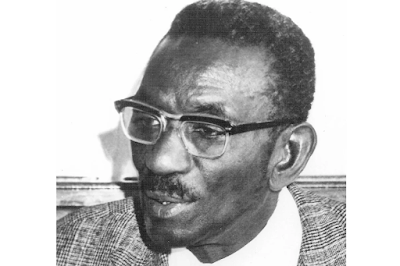 |
| Dr Cheikh Anta Diop |
Other most notable works of Dr. Diop include The books; 'The African Origin of Civilization: Myth or Reality', 'Black Africa: The economic and cultural basis for a federated state', and 'Civilization or Barbarism: An Authentic Anthropology among many others'.
#3. Dr. Hendrick John Clarke
Dr Clarke (Jan. 1, 1915 - Jul. 16, 1998) was an African-American historian and scholar who helped in the creation of Pan-African and Africana studies starting in the late 1960s. He lectured at Hunters College and was Dr. Woodson's distinguished visiting professor of African History at Cornell University’s Africana Studies and Research Center. He also founded the African Heritage Studies Association and the Black Caucus of the African Studies Association in 1968.
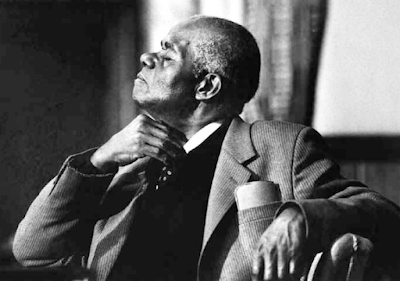 |
| Dr. John Hendrick Clarke |
Among the most notable works of Dr. Clarke includes his books; 'African People in World History', 'Christopher Columbus and the Afrikan Holocaust: Slavery and the Rise of European Capitalism', 'Who Betrayed the African World Revolution?', 'Africans at the Crossroads: Notes for an African World Revolution', etc.
#4. Dr Cress Welsing
Frances Luella Welsing (March 18, 1935 – January 2, 2016) was an American psychiatrist and a staunch black history champion. If you want to understand racism, Dr. Cress' works should be your first priority. In 1992, she published 'The Isis Papers: The Keys to the Colours', a book that scholarly detonates the white supremacy system and educates black people on its role in their predicament. In her point of view, racism is a conspiracy that ensures white genetic survival.
Dr. Cress adds to the widely accepted view of Africa as the cradle of mankind by saying that the first white people were born to black parents. She goes further to attribute homosexuality, effemization and the rise of black male convicts as a way of fighting the black population of the world.
Apart from being a lecturer, Dr. Cress is also known for her first book 'The Cress Theory of Color-Confrontation' which argues that white supremacy and superiority are driven by a pervasive feeling of inadequacy and inferiority. She is also known for her spirited lectures that can today be found on Youtube.
#5. Dr. Ben-Jochannan
Dr. Ben (December 31, 1918 – March 19, 2015) as famously known was an American writer and historian. He was born in Ethiopia. Professionally, he trained as a lawyer, engineer, historian and Egyptologist. He was a lecturer at Cornell University’s Africana Studies Department and Al Azar University in Cairo. Dr Ben coordinated regular study tours to the Nile Valley, where thousands of Africans got to learn about the splendours of ancient Egypt. Most Africans regard him as the most famous scholar of African history.
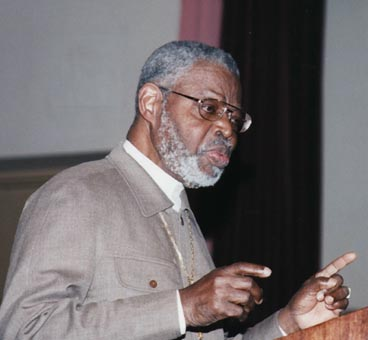 |
| Dr. Ben |
He is the author of many books including; 'African Origins of the Major Western Religions (1970)', 'Africa: Mother of Western Civilization (1971)', 'Black Man of the Nile and His Family (1972)', 'A Chronology of the Bible: A Challenge to the Standard Version (1973)', 'The African Called Rameses ("The Great") II', and 'The African Origin of Western Civilization (1990)'.
#6. Dr Runoko Rashidi
Dr. Runoko (16 August 1954 – 2 August 2021) was a historian, essayist, author and public lecturer based in the USA and France. He is widely known for his research on the African presence in Early Europe and Asia, and the history of black ancient Egyptians.
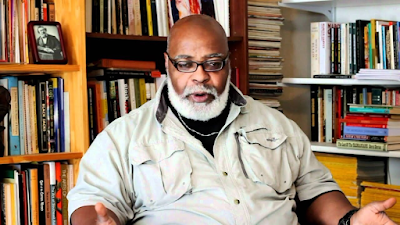 |
| Dr. Runoko Rashidi |
Among his most famous books are; 'Black Star: The African Presence in Early Europe', 'African Star over Asia: The Black Presence in the East', 'My Global Journeys in Search of the African Presence', 'Introduction to the study of African classical civilizations', and 'Uncovering the African Past - The Ivan Sertima Papers'.
#7. Chancellor Williams
Chancellor Williams (December 22, 1898 – December 7, 1992) was an American sociologist, historian and writer. He is most famous for his work on African civilizations before European contacts. His major work is the book 'The Destruction of Black Civilization' (1971) which has been the cornerstone of African history enthusiasts. I can confess that it's the book that contributed largely to making me conscious of African history.
Other books by Chancellor Williams include; 'The Rebirth of African Civilization' (1961) and others.
As stated before, there are many scholars on African History, they include Marimba Ani, Prof. Molefi Kete Asante, Dr. Theophile J. Obenga etc. This list could not capture each and every one of them.


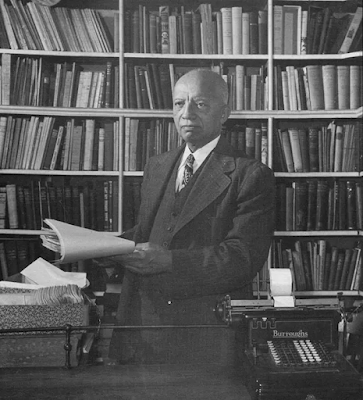
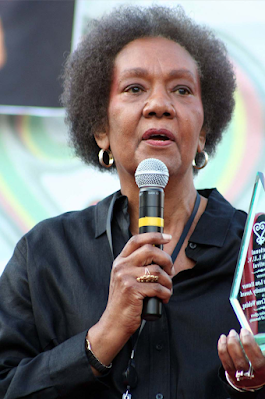
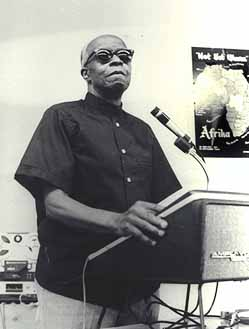

What is your opinion about the article you have just read? Let us know.